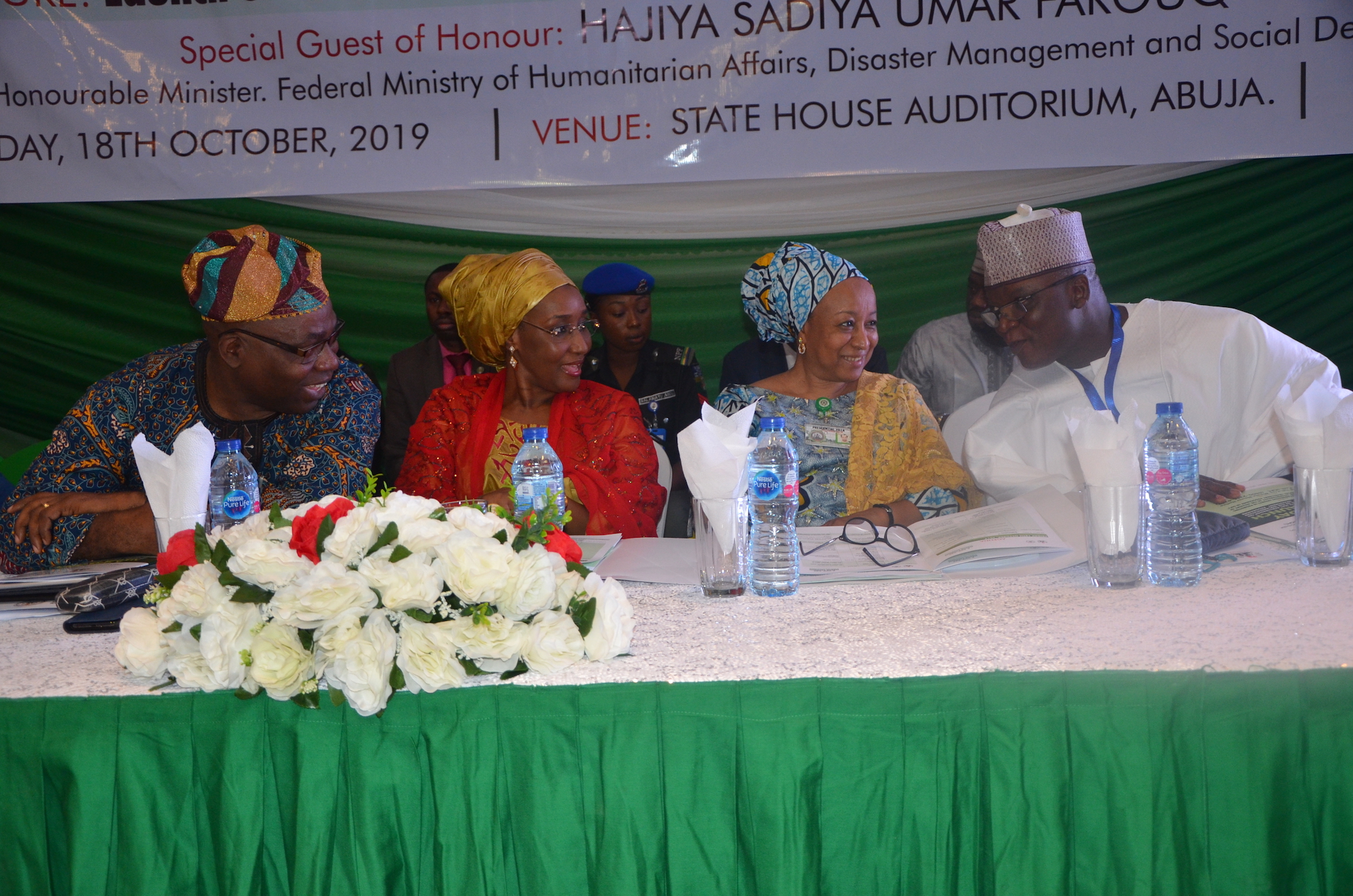The National Social Investment Office (NSIO) and Independent Corrupt Practices and Other Related Offences Commission (ICPC) have joined forces to promote transparency and accountability in the delivery of the Federal Government’s social investment programmes.
This collaboration was flagged off Friday with a one-day Media Launch held at the State House Auditorium, Aso Villa in Abuja.
The collaboration is intended to diminish corruption in the implementation of the National Social Investment Programme (N-SIP) as ICPC has the statutory power to investigate and prosecute reports of corruption.
A key feature of the flag-off was the launch of a Toll-Free Whistle Blower Hotline: 0800-CALL-ICPC (0800-2255-4272) through which corrupt acts in the execution of the N-SIP can be reported for enforcement action by the Commission.
In her keynote address, the Honourable Minister of Humanitarian Affairs, Disaster Management and Social Development, Hajiya Sadiya Umar Farouq, recalled that President Muhammed Buhari on assumption of office in 2015 introduced the N-SIP with the objective of improving the standard of living of poor and vulnerable Nigerians.
This, she said, gave birth to NSIO in 2016 to coordinate and supervise all components of the social protection programme such as: National Home Grown School Feeding Programme (NHGSFP), Government Enterprise and Empowerment Programme (GEEP), N-Power and National Cash Transfer Programme (NCTP).
The minister who expressed her excitement at the launch of an inclusive citizens’ engagement approach to the operations of the N-SIP, stated that the collaboration between NSIO and ICPC was important as it was aimed at preventing and eliminating “third party corruption” in the N-SIP and also underscored commitment, zeal, passion and inter-agency cooperation towards achieving the desired results in the ongoing campaign against corruption.
According to her, “to achieve the task of lifting 100million Nigerians out of poverty in 10 years in line with Mr. President’s directive, we must as a ministry ensure that all our poverty alleviation strategies and programmes remain strengthened and devoid of infractions that can undermine ongoing efforts to empower our poor and vulnerable citizens”.
Earlier in his address at the event, ICPC Chairman, Prof. Bolaji Owasanoye, had noted that when he and his board members assumed duties, they decided to focus on the “big ticket issues” that would have macro effect on the public rather than on single issues that would give relief to one complainant.
They therefore strategically engaged and partnered with other agencies of government to help minimize the multiplier effects of corruption on many Nigerians.
Expressing the Commission’s delight on the partnership, Prof. Owasanoye warned that individuals who made away with N-SIP funds would soon face the Commission’s wrath. He explained that ICPC in investigating some cases reported to the Commission, found out that some criminals take part of the N5000 NCTP payment from beneficiaries as account opening commission.
The ICPC boss revealed the Commission’s decision to work with NSIO was strategically based on its mandate of enforcement, prevention and public education. The strategy of engagement would involve a focus on the N-SIP processes, blending with the communities to evaluate if the offenders are within the NSIO and also strengthen the processes to diminish corruption in the implementation of the programmes.
According to him, because “sin thrives in secrecy” and a lot of people are ignorant of the intentions of government, criminals infiltrate the process by trying to undermine it. In this regard, he said, ICPC in collaboration with civil society has organized massive campaigns to break down and demystify the things that people do not understand about the workings of government, “ take for instance the zonal intervention on constituency projects, we found out that many communities do not know that the projects are sponsored by government”, he said.
Also speaking at the event, the Special Adviser to the President on N-SIP, Mrs. Mariam Uwais, noted that the NSIO – ICPC partnership would help catch and prosecute those engaging in corrupt practices in the programme.
According to the Special Adviser, some of the challenges they face in implementing the programmes in the states include: teachers taking part of the food rations meant for school pupils; contractors short changing the supply of food stuffs; some local government officials taking some of the beneficiaries’ ATM cards to access their funds and a lot more. She gladly reported that such loopholes in the FCT had been blocked and also that “over 6.1 million households have been captured on the National Register”.

